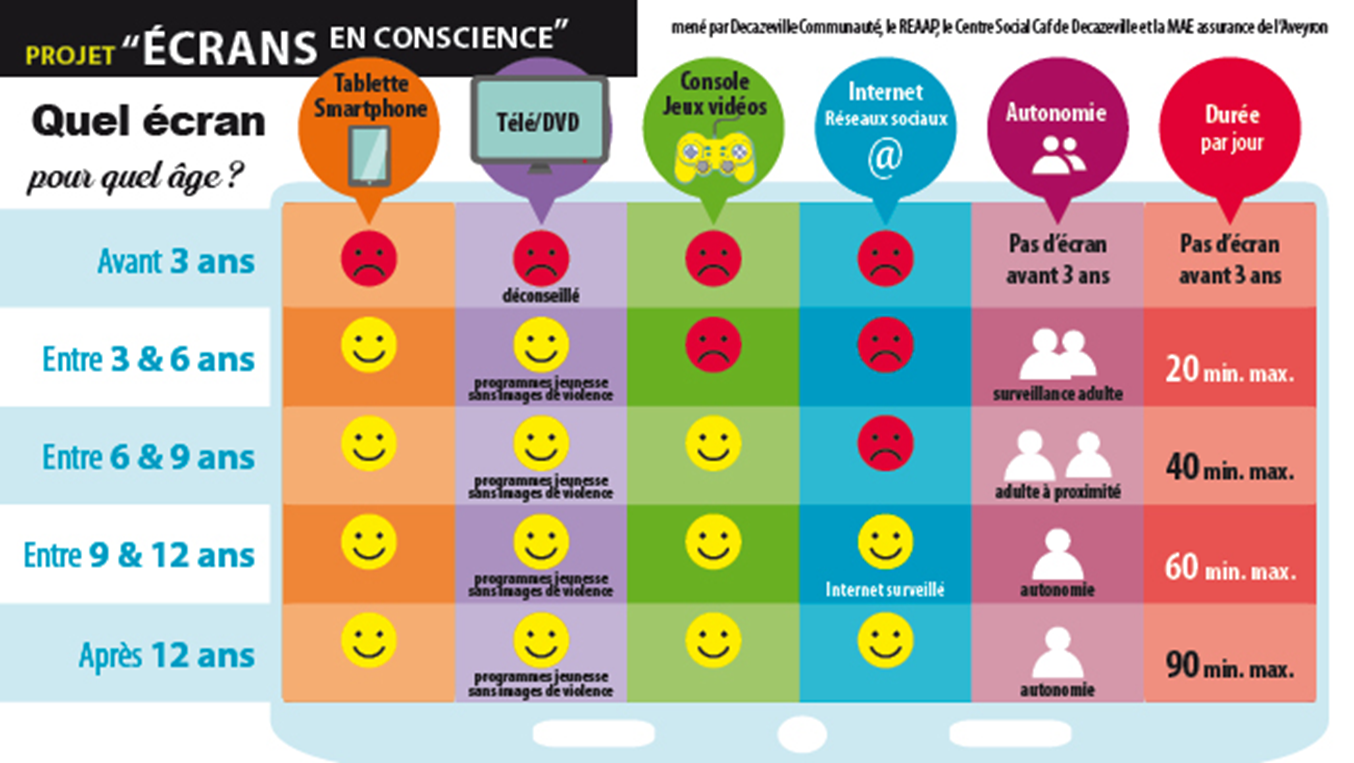The recommended screen time for children
In the current era of technology, children and teenagers are exposed to screens more than ever before. However, it’s important to recognize that not all screen time is created equal. We provide customized advice to parents and caregivers to help them navigate the digital landscape effectively.

Moreover, some screen time can be beneficial for children’s social development and education. But how can you effectively regulate your child’s screen time?
️⛳️Before 3 years
The child needs to build his spatial and temporal references.
It has been scientifically demonstrated that non-interactive screens (TV and DVD) have a negative effect on development, avoid them, install a frame from this age.
It is a false idea to believe that the any little one can learn language by watching TV, nothing is as rich than human interaction.
Before 3 years, there are no suitable screens to children, including broadcasts announced their age.
Nothing beats traditional toys which involve his five senses and then allow him to establish his bearings in space and time. In addition, he feels like an actor in the interactions he creates between the small characters he manipulates, rather than a spectator of the world.
⛳️From 3 to 6 years
The child needs to discover all his sensory and manual possibilities.
Before the age of 6, children need to discover all their possibilities: it is a priority that they have activities involving their ten fingers, to develop their motor skills, and especially their brain.
Do not offer a personal console or tablet that can be used at any time to your child: at this age, playing alone quickly becomes stereotypical and compulsive.
It is important:
- establish clear rules on time screens,
- install the screens in the living room,
- to prefer video games that are played with others, computers and home consoles can be an occasional medium for family gaming, or even accompanied learning.
⛳️From 6 to 9 years old
The child needs to discover the rules of the social game.
It is important to install the screens in the living room, to discuss with the family what is happening there. Familiarize yourself with video games, films that your children can watch, not only to control the question of age but also to have elements to talk with them about what they see there.
Create an account for your child on the family computer and configure the games console so that your child can only engage in activities that correspond to his or her age.
Before the age of 9, the child continues to develop the different forms of his intelligence. The Internet risks blurring the benchmarks it is building. To avoid the pitfalls of the web, children must in particular assimilate the distinction between private and public spaces.
⛳️From 9 to 12 years old
The child needs to explore the complexity of the world.
Before the age of 12, children need to explore the complexity of the real world, to experience their social relationships, to test their behaviors and the reactions they provoke, without the distance created by screens.
It is important:
- to favor games with family and friends, in the same room,
- install the screens in the living room.
- to take time every day to talk with him about what he has seen on the screens, what his classmates are watching and the exchanges he has with them.
Discuss with him what he finds on the Internet... Insist on everyone's right to their image and privacy. In practice, it is therefore prohibited to post comments, photos or videos involving third parties without their authorization. Remind him that he should never write things that he could not say face to face and urge him to never turn on the webcam. Remind them that it is not possible to go on Facebook before the age of 13.
Determine with your child the age at which they will have their mobile phone.
⛳️After 12 years
The child begins to free himself from family guidelines.
Don't think it's too late to reinforce boundaries or teach your child about digital technologies.
The question of Facebook must be decided clearly: it is prohibited before the age of 13. After this age, avoid secretly monitoring what your teenager is doing there. Refuse to be his “friend” on social media.
Discuss with him about downloading, plagiarism, pornography, harassment, etc.
The best warning sign of problematic Internet use remains academic results. A sudden drop in grades is an indicator that should be taken very seriously.
(source www.decazeville-communaute.fr)